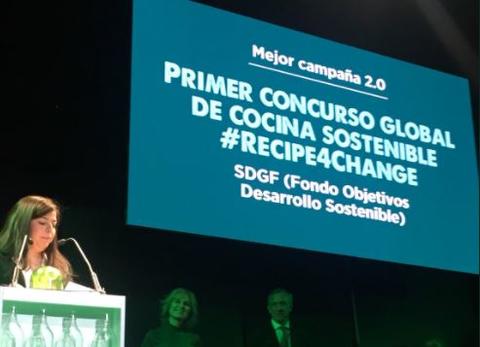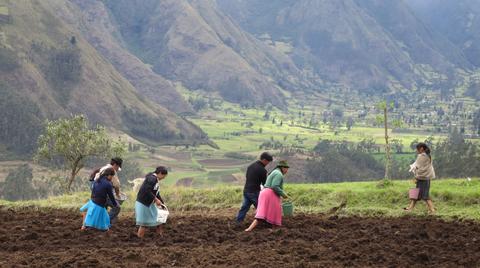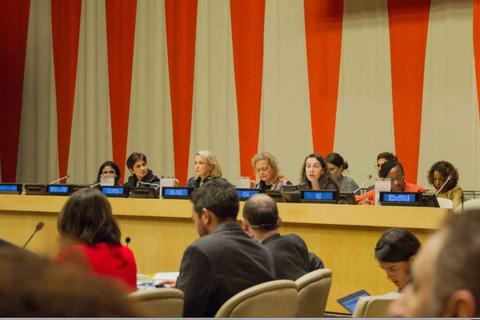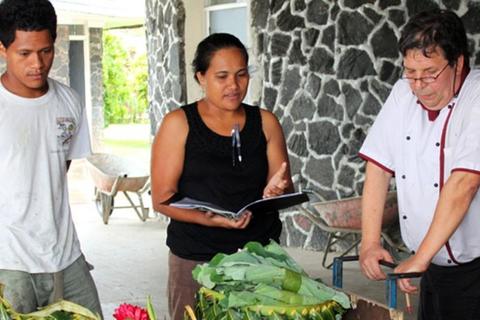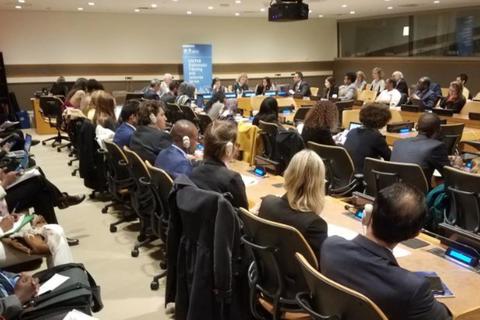February 2, 2016
Building sustainability through national ownership
Whether you like it or not, the notion of sustainability has become one of the most debated topics of recent times. Like other complex concepts, the idea can have different connotations to different stakeholders. The most frequently cited definition of sustainability is by the Brundtland Commission of the UN in 1987 which defined sustainability as “meeting the needs of the present without compromising the ability of future generations to meet their own needs”. Given the three pillars of sustainable development: environmental integrity, social equity and economic security, the challenge has been to integrate these dimensions of sustainability to development programmes.
Drawing from extensive experience of development practice, the Sustainable Development Goals Fund (SDG Fund) is continually seeking better ways to incorporate the principles of sustainability into all our projects so as to ensure long-term development gains. The Fund brings together UN agencies, national governments, academia, civil society and business on integrated actions to reduce poverty, improve nutrition and provide access to affordable water and sanitation. Given our rich experience in international development, we realized that collaborations between UN agencies and national counterparts could be highly effective, but achieving sustainability in harmony with economic growth, social progress and environmental protection requires us to go the extra mile. Only when businesses are part of the development process can we attain this.
Our development programmes, integrating sustainability, require an analysis of the governance architecture and the different stages of the programme cycle. At a national level, this may include the formulation of national policies, long term and multi-year development plans, sectoral budgetary allocation processes, and regulatory processes. Our 18 programmmes on the ground consider climate change adaptation which is promoted through specific interventions and throughout the programme cycle. As a collective endeavour, all SDG Fund programmes are developed with local partners and additional matching funds are provided by national and local governments, international donors and the private sector. This increases sustainability and the potential to scale up.
Working towards sustainability requires that we incorporate the following objectives:
- Adopt a human rights-based approach to all the joint programmes;
- Promote national and local ownership in all the joint programmes;
- Mainstream environment and climate change in development programmes;
- Sustainability of programme achievements after termination of activities.
For joint programmes have demonstrated that national and local leadership is critical for realizing positive outputs and improving the sustainability of results. Governments at national, regional and municipal levels more readily assume ownership and responsibility when they feel that initiatives build on their existing visions, strategies and institutional frameworks. In many cases, with significant national commitments in countries like Mozambique programme outcomes and the ownership of the policy, procedural and legislative change has been initiated. As above mentioned, national partners provide approximately 56% of our resources in matching funds which in practice generates a strong sense of national ownership and increases the likelihood for a project’s continuity and success.
Consider the food security and nutrition programme in Viet Nam, which was originally implemented by the former MDG Fund and with its success, has been expanded and scaled to reach up to 36 million women of reproductive age and 7.1 million boys and girls. The programme supports the implementation of integrated nutrition and food security and nutrition strategies. As an ongoing programme from previous joint activities, it also supports capacity development of local institutions, organizations and policy makers managing and implementing food security and nutrition programmes. For example, key national policy efforts were supported to bring Viet Nam to the forefront of the global effort to curb maternal and infant and young child malnutrition and at the same time, offering greater maternal protection by extending maternity leave from 4 to 6 months.
The case of the Philippines involves improving access to water with the national government in tandem with the SDG Fund. This programme, Pro WATER builds on the experience and gains of earlier programmes on water and on climate change adaptation. The programme is designed to empower citizens and build resilient communities by improving access to integrated safe water, sanitation and hygiene, increase women and girls’ participation in water governance and decrease incidences of water borne and sanitation related diseases. The joint programme is now being implemented in ten local government areas where more than 50% of the poor populations do not have access to safe water, sanitation and hygiene thereby classified as waterless municipalities.
Historically, the guiding principles of the SDG Fund are based on the understanding of national ownership which is rooted in principles of the Paris Declaration on Aid Effectiveness which calls for partner countries to exercise effective leadership over their development policies and strategies and coordinate development actions. This means advocating for national ownership to work at different levels so that all stakeholder institutions including civil society, private sector and local communities are engaged in the efforts to own and sustain development initiatives. In fact, looking forward we believe ownership is one of the best strategies towards ensuring development impact and to guarantee that a development project succeeds in the long run. We think this sounds like a real recipe for success and a potentially replicable model to meet the elusive concept of sustainability.

